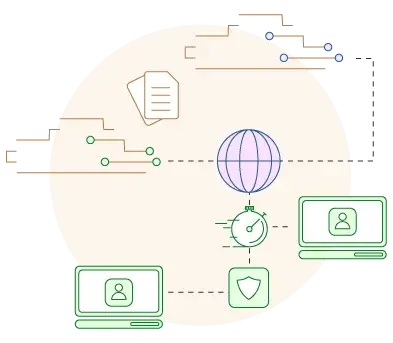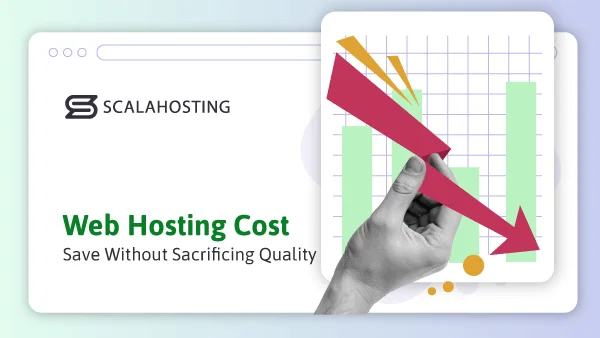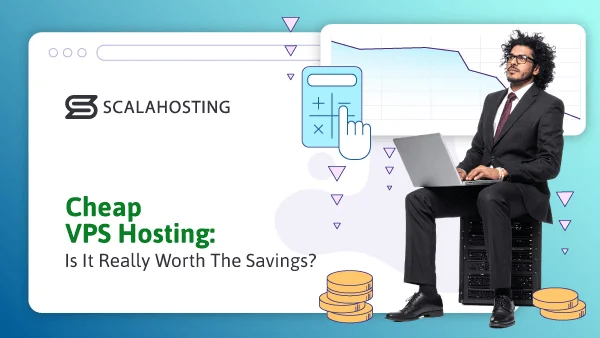What is an Unmanaged VPS?
They say an unmanaged VPS is like a crewless ship. You get a little more freedom–and because no one is aboard – you don’t have to pay for help either. It all sounds great if you’re an experienced sailor (or tech wiz). But if not – keeping your head above water may be tricky.
This article explores the inherent nature of self-managed VPS services, their pros and cons, and how they compare to their managed server counterparts.
What are VPS Services?
VPS stands for Virtual Private Server. This is a type of service where a physical server is split into several virtual copies, each acting as an independent entity.
Virtual servers significantly optimizes your site performance and uptime, compared to the average shared hosting plans. Security is also taken to another level, thanks to the caged environment on a VPS platform, keeping you safe from breaches in neighboring accounts.
You can also find cloud VPS solutions. They utilize the resources of hundreds of interconnected servers over the world and ensure a practically limitless scalability.
Benefits of Choosing VPS Hosting
The main benefit of purchasing this services is the significant improvement in page load speed and uptime. VPS clients have their own separate pool of resources and their site performance is unaffected by “bad neighbors.”
For example, suppose you have an ecommerce site or an online business. In that case, VPS could be your best choice because your brand reputation is at stake and you cannot afford to show yourself in a bad light.
There are two main types of VPS services—managed and unmanaged.
Managed VPS
Managed VPS solutions are usually more expensive than unmanaged ones, and you can find the reason in their name – they include professional support from your host.
The advantages of such a setup are more than a few:
- You can control what happens on the server (e.g., it will not get hacked or overloaded);
- The company handles any technical issues that may arise;
- You don’t need the technical knowledge to install or configure the operating system on your own;
- You have support if you want to add new hardware or software to your server;
- You get a highly scalable infrastructure to support multiple websites or apps;
- The hosting provider handles server backups and security;
- You can choose from a wide range of virtual server configurations;
- You can also upgrade your VPS at any time without having to pay for an additional contract term.
- Dedicated IP address for better security and connectivity.
This last one is very important as it allows you to increase your site performance as needed without paying extra fees for hardware upgrades. VPS solutions also give you more flexibility when making changes to your site configuration, such as adding new features or migrating existing content.
Who is a Managed VPS Good for?
Managed VPS plans are designed for businesses that require a high level of security, reliability, and flexibility. They are also perfect for companies that want to host multiple websites on their servers simultaneously without worrying about managing server resources or hardware maintenance.
Unmanaged VPS
A self-managed VPS carries all the characteristics of managed virtual servers without the added hosting support. The client is the sole administrator on the machine and they can configure it as they please.
The main advantage of unmanaged VPS is the very affordable price. You are basically getting nothing more than a bare metal server with nothing on it, and the costs are duly reflecting on that.
Still, it’s not all perfect for self-managed VPS clients:
- Very complex to manage for inexperienced users
- The security setup is entirely your responsibility
- No control panel installed
- No hosting support in case of technical issues
- Each added component increases your costs
Unmanaged VPS Benefits
- Full customization – With this type of service, you get complete control over what you want to do with your server. You have full root access to install your OS, set up RAID storage to doing backups. or reset the server.
- Lower cost – The server is very cost-effective because there are no extra costs for features you won’t be using or technical support you won’t be needing.
- Complete autonomy – Self-managed VPS clients get full root access, which means the entire server is “unlocked” for them. What they do with this administrative power is entirely their choice.
Unmanaged VPS is an excellent choice for small businesses, startups, and individuals who don’t need the full support of an administrator.
Who is an unmanaged VPS good for?
Unmanaged VPS is suitable for those who want to use their own hardware but don’t have the budget or expertise to manage an entire web server. You can control your resources and install whatever software you need. Self-managed virtual servers are also great if you want to host multiple websites on one server and do not want to pay extra for additional bandwidth or storage space.
Additionally, an unmanaged VPS is a great way to test out some code or develop an online project from scratch.


Final Takes
ScalaHosting’s fully-managed VPS plans provide incredible value for any user that doesn’t feel experienced enough to manage their own server. Our technicians have years of experience setting up and managing various types of websites for clients. We will be glad to help with unique management, security, and performance tools to guarantee you are getting the best out of your web hosting deal.
And if you want to save some money – you’re still in good hands using our self-managed SSD cloud VPS.
FAQs
Q: What is the difference between a managed and unmanaged VPS?
A: A managed VPS has everything taken care of for you – from installation and maintenance to security and development. On the other hand, an unmanaged VPS doesn’t come with many services. In this case, you must set everything up and take care of your site with little to no support.
Q: What is shared vs. dedicated server hosting?
A: Shared hosting is when you split the physical server resources – memory, RAM, disk space – with other website owners. It’s cheaper but you have less control over the environment and varying performance. Dedicated hosting is having your own server to yourself. You have full control over what’s installed and how the machine functions.
Q: Does an unmanaged VPS work without internet?
A: Not normally. To access any virtual server, you need to connect to it through the internet. The only other option to access your server remotely while offline is to set up a wireless point-to-point connection.
What is an Unmanaged VPS?


